Search Images
Browse Content (p. 1197)
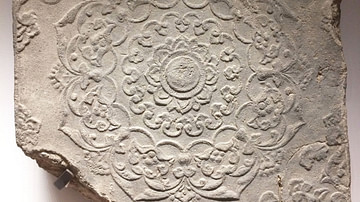
Image
Fragment from a Buddhist Temple in Afghanistan
This is a fragment from a Buddhist temple in Afghanistan. It dates from between 100-500 CE. (Musée Guimet, Paris)
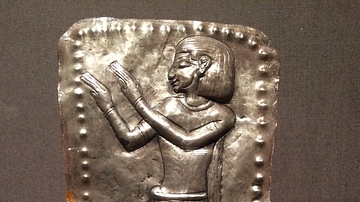
Image
Silver Plaque from Ancient Egypt
This ancient Egyptian plaque dates from the 13th-12th century BCE. It is made of silver and other metals. (Collection of Jude and Michael Steinhardt, New York)
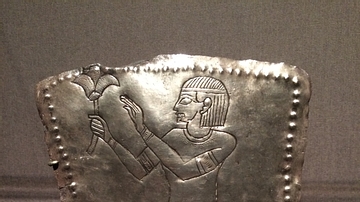
Image
Ancient Egyptian Plaque
This ancient Egyptian plaque dates from the 13th-12th century BCE, and it is made of silver and other metals. (Collection of Jude and Michael Steinhardt, New York)
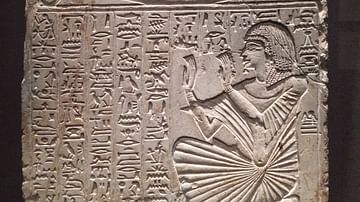
Image
Ancient Egyptian Stela of Inherkhau
This funerary relief originally adorned the tomb in Egyptian Thebes of Inherkhau, a high official at the court of Ramesses III. It dates from 1184-1153 BCE or later, and it is made of limestone. Inherkhau kneels in a lower right position...
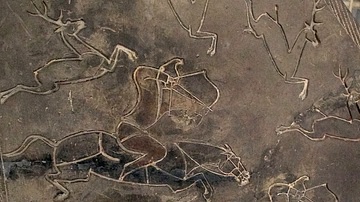
Image
Han Mounted Archer
A mounted archer hunting, Han dynasty, 206 BCE - 220 CE. From a funeral slab.
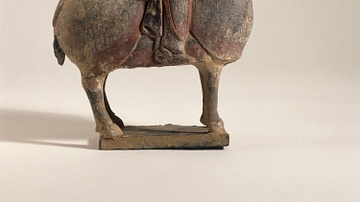
Image
Northern Wei Cavalry Rider
An earthenware cavalry rider from the Northern Wei dynasty. 386-534 CE. Height: 21.5 cm. (Brtish Museum, London)
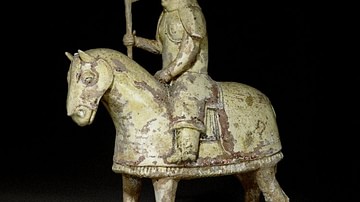
Image
Chinese Cavalry Rider
An earthenware cavalry rider from the Tang dynasty, China. 618-906 CE. Height: 24 cm.
(The British Museum, London)
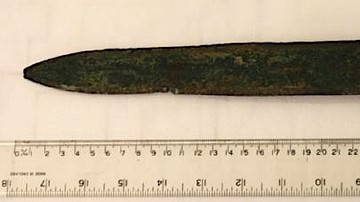
Image
Eastern Zhou Dynasty Sword
A bronze sword from the Eastern Zhou dynasty, China, 5th-3rd century BCE. (British Museum, London)
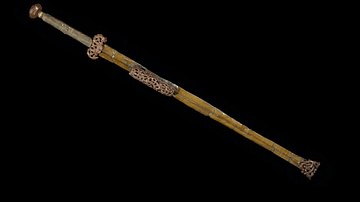
Image
Han Dynasty Sword
A Han dynasty iron sword and scabbard with wood and lacquer decoration, China, 2nd century BCE. (British Museum, London)
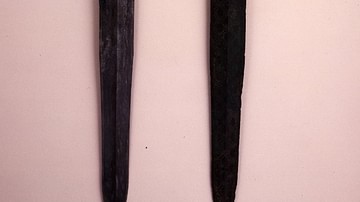
Image
Eastern Zhou Swords
A pair of bronze swords from the Eastern Zhou dynasty, China, 5th-3rd century BCE. (British Museum, London)